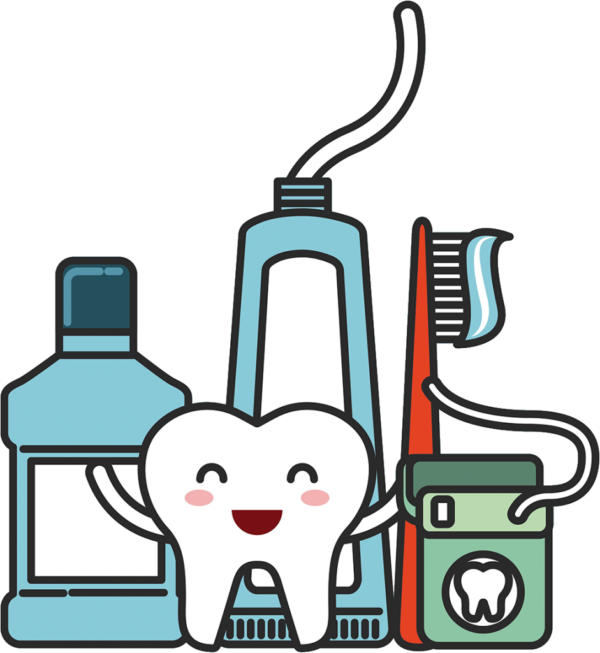Enhance Your Dental Implant Success
When you decide dental implants are right for you, you’re choosing a restorative solution that provides you with a lifetime of benefits. After Birmingham, MI, implant dentist Dr. Abdullah Sayed has completed the dental implant process, many patients are unaware they can impact the success of their new smile.
This is why we’ve put together a comprehensive post-operative guide to help ensure you properly care for your implants and maintain good oral health. If you have questions or concerns about caring for your implants, call us at (248) 901-0000.

Initial Aftercare for an Easy Recovery
Immediately after your implant surgery, knowing what you can and can’t do is important to ensure an efficient recovery. Follow these tips within the first few days of your healing period to not jeopardize the healing process.
- Mindful Food Choices: Refrain from consuming hard or sticky foods that pose a risk to your surgical site. Instead, opt for a soft food or liquid diet comprising items like smoothies, yogurt, soup, and mashed potatoes during the initial days.
- Avoid Spitting and Straw Use: Exercise caution with activities like spitting or using a straw since they can exert pressure on the implant, potentially impeding proper healing. It’s advisable to minimize such actions to support an uncompromised recovery.
- Gentle Saltwater Rinses: After meals or two to three times daily, incorporate saltwater rinses into your routine. This practice aids in the gentle cleansing around the implant and helps mitigate inflammation. Remember not to spit out the solution; instead, let it flow naturally from your mouth.
- Abstain from Smoking and Alcohol: Steer clear of smoking and alcohol consumption during the initial recovery phase. Both factors can compromise blood flow, hindering the overall healing process and potentially impacting the success of your implants.
- Caution with Weight Loss Efforts: Exercise caution in embarking on an intense weight loss journey during this period. Rapid weight loss has the potential to influence the success of your implants and may contribute to implant failure. Prioritize a balanced approach to maintain overall well-being.
Follow-Up Appointments
After the initial dental implant surgery, regular follow-up appointments with Pristine Periodontics and Implants are essential to monitor the healing process and ensure the long-term success of the implant. These appointments provide an opportunity for the dentist or oral surgeon to assess the implant site and address any concerns. Here’s what to expect:
Regular Checkups
Attend all follow-up appointments as scheduled by your Birmingham implant dentist. These appointments are typically spaced out over several weeks to months. During each visit, Dr. Sayed will conduct a thorough clinical evaluation of the implant site. This may involve visual examination, palpation, and possibly X-rays to assess bone integration.
X-rays for Monitoring
X-rays may be taken periodically to monitor the integration of the implant into the jawbone. The frequency of X-rays will depend on the specific treatment plan and Dr. Sayed’s assessment. X-rays help in evaluating the stability of the implant and detecting any issues that may not be visible during a regular examination.
Adjustments and Recommendations
If you have a dental crown, bridge, or other prosthetic attached to the implant, Dr. Sayed may make necessary adjustments to ensure a proper fit and functionality. Your implant dentist will also provide instructions on maintaining optimal oral hygiene around the implant. This may include recommendations for specific oral care products and techniques.
Monitoring Overall Oral Health
Dr. Sayed will assess the health of the surrounding gums to ensure they’re properly supporting the implant and that there are no signs of inflammation or infection. The follow-up appointments are also an opportunity to discuss and address any other oral health concerns or questions you may have.
Long-Term Treatment Plan
Based on the progress observed during follow-up appointments, Dr. Sayed may discuss any necessary future steps, such as additional restorative work or ongoing maintenance. Your Birmingham implant dentist will educate you on the importance of continued oral care and regular dental checkups to maintain the health of the implant and surrounding tissues.
Addressing Concerns
Use these appointments to communicate any discomfort, pain, or concerns you may be experiencing. Timely communication with your dental implant provider is crucial for addressing potential issues promptly.



Long-Term Care
After your initial recovery, it’s crucial to maintain good oral hygiene and use the right products to ensure a long-lasting implant. If you follow these simple tips, your new smile will continue to radiate beauty and confidence for years to come.

Maintain Good Oral Care
Taking care of your oral health provides you and your implant with great benefits. The health of your gums is a vital factor for the success of your implant. It’s important to know even though your implant itself won’t decay or become infected, the supporting tissue around it still can.
If you don’t brush and floss properly every day, your gums will begin to build up bacteria and form plaque and tartar. This will lead to an infection in your gums and around your implant, known as peri-implantitis.
Peri-implantitis weakens your gums and loosens your implant, eventually leading to implant failure. To avoid this, you must brush twice a day, floss at least once a day, use mouthwash, and attend biannual visits to our Birmingham or Canton office for cleaning and checkups. This is to ensure you’re completely removing any bacteria or food particles in your mouth.

Use the Correct Dental Products
Some dental care products are beneficial for dental implants, but others can harm them. Luckily, your cleaning routine is the same as with your natural teeth. Some factors to consider when choosing your products include:
- Gentle Bristles for Toothbrush: Opt for a toothbrush with soft bristles to ensure it neither irritates your gums nor jeopardizes the integrity of your restoration.
- Mild Toothpaste Formulation: Choose toothpaste without harsh ingredients commonly found in whitening or smoker toothpaste. This precaution helps maintain the health of your dental implants.
- Specialized Implant-Friendly Floss: Select floss designed explicitly for implants or opt for a variety coated with nylon. This ensures effective cleaning without causing harm to the implant structure.
- Alcohol-Free Mouthwash: Prioritize mouthwashes that don’t contain alcohol as an ingredient. Alcohol can potentially hinder the healing process and lead to dryness in your mouth, both of which may affect the longevity of your dental implants.
Frequently Asked Questions
How should swelling/bruising around the implant area be treated?
It’s normal to experience swelling or bruising around the implant site after the procedure. This usually subsides within a few days after the surgery. You can reduce the swelling with cold compresses — hold the ice pack on the cheek where the implant is for a maximum of ten minutes at a time with a break for twenty minutes.
However, gentle heat is more beneficial after the first 24 hours have elapsed. It also helps to sleep slightly on two to three pillows underneath your head.
Will there be pain after the procedure?
Pain shouldn’t be too much of a problem for patients after their implant procedure. Although you may be sore for a few days after surgery, this can be managed with over-the-counter medications. You can take whichever painkillers you normally do for headaches, body aches, and sprains (ibuprofen and paracetamol make a good combination), and you should take your first dose before the local anesthetic has completely worn off.
If you experience increasing pain and swelling after a few days, contact your dentist immediately.
What do I do if there are any complications with my dental implants?
Complications are rare since dental implants have a success rate of 98 percent. However, if you’re feeling severe pain or discomfort, contact your implant dentist’s office right away. Don’t attempt to fix it yourself as it can result in permanent damage and delay your recovery. Your dentist will evaluate your dental implants and provide you with the care you need.
How long is the recovery after the dental implant procedure?
Most patients require around six to nine months to heal after their implant placement procedure. During this time, your mouth will go through the osseointegration process where your gum tissues will fuse with your implant to form a sturdy foundation.
These are the several factors that can influence your recovery period:
- Oral health condition
- Aftercare
- Supplemental procedures
- Number of implants received
- Health condition
- Tobacco usage
Stay Consistent With Your Check-Ups
Make sure you keep up with your regular professional cleanings and exams with Dr. Sayed so he can ensure everything is going well with your implants. If he finds any unexpected issues, he’ll be able to treat them right away to avoid complications in the future.
If you have any other questions throughout your healing process, be sure to contact our office right away at (248) 901-0000 or fill out our convenient contact form below to schedule your appointment and ensure a successful recovery. Our Birmingham dental practice is conveniently located near Pontiac, Highland Park, and many more surrounding areas, and our Canton office is located near Ann Arbor, and Dearborn, MI.
